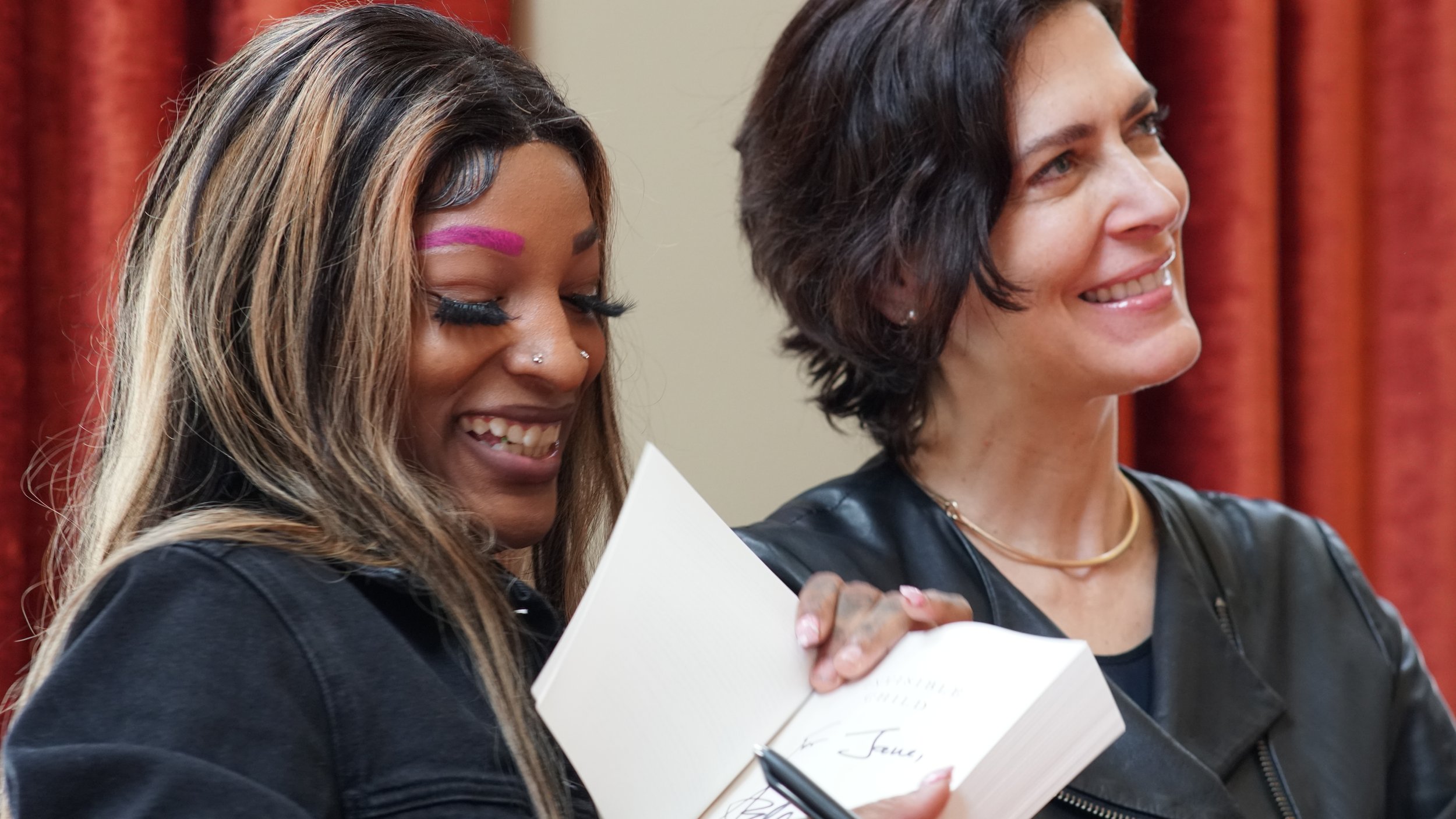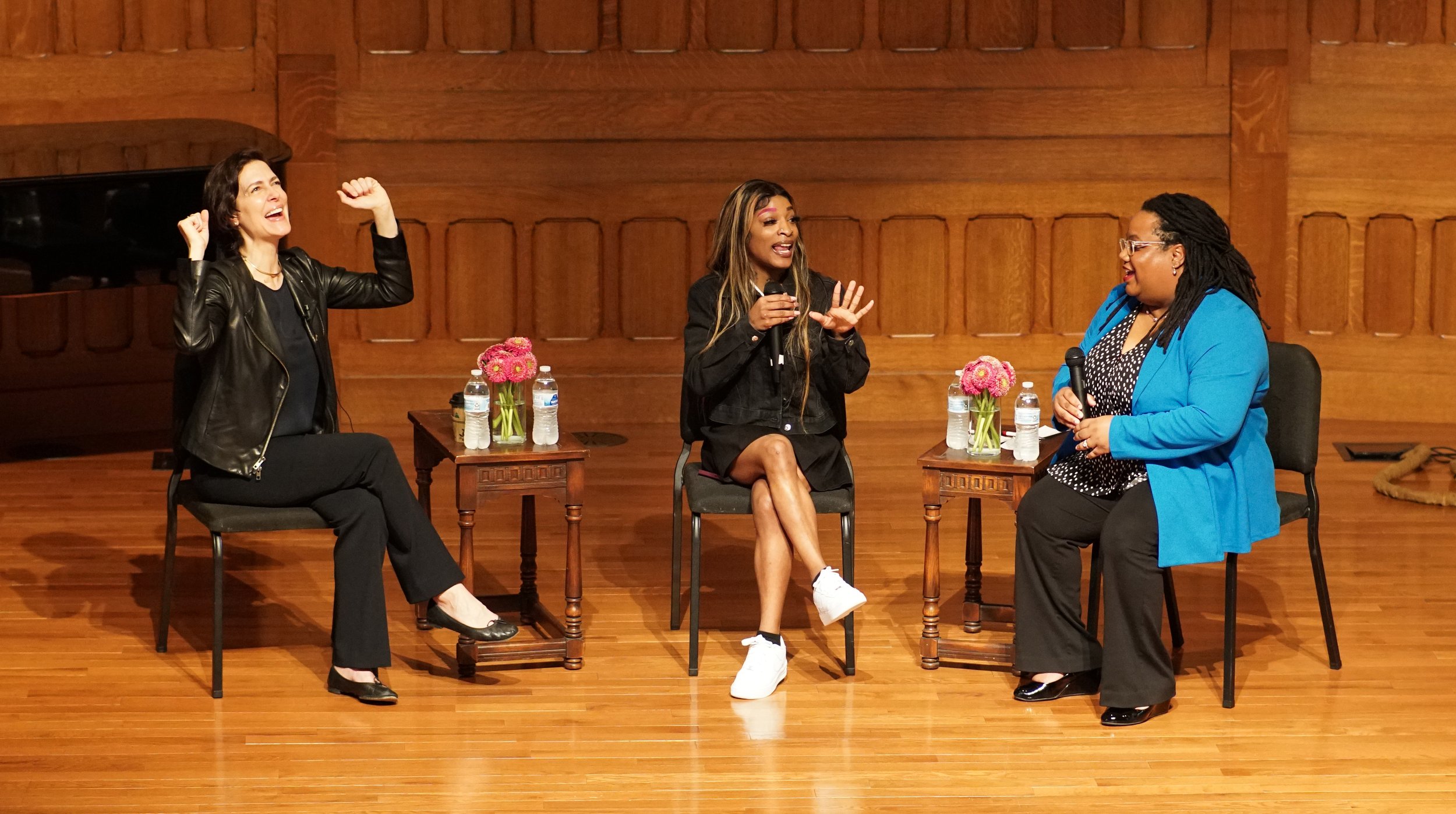Journalist Andrea Elliott tells audience to remember the childhoods that reside in us all
In 2012, journalist Andrea Elliott encountered a startling statistic: One in five American children were growing up in poverty.
The public discourse about poverty, however, usually focuses on adults – and the “choices” those adults are presumed to have made, Elliott said Tuesday.
“They are blamed for their condition, for their poverty, for their housing insecurity, for their food insecurity, for their inability to rise to the promise of America,” she said, speaking to a crowd of about 200 people inside the Grand Hall at Indiana Landmarks.
But what about the kids?
That question struck Elliott when she saw the statistic.
When she began reporting a five-part series for The New York Times in 2012, Elliott’s plan was to focus on the kids. No matter where readers sat on the political spectrum, no one could argue that children were responsible for their own well-being or that their poverty was a result of their choices, she said.
Elliott’s reporting led her to Dasani Coates, then an 11-year-old growing up in a homeless shelter in Brooklyn. Following the newspaper series, she continued to embed herself in Dasani’s family for nearly a decade, her work resulting in the Pulitzer Prize-winning book “Invisible Child: Poverty, Survival and Hope in an American City.”
Elliott spoke alongside Dasani Coates Tuesday at “Invisible No More,” an event hosted by United Way of Central Indiana. The conversation was moderated by Camike Jones, editor-in-chief of the Indianapolis Recorder.
This was the third United Way event in as many years focused on "thought leadership,” bringing people to the stage to share their experiences, expertise and stories to provide a deeper understanding of the issues United Way and its partners seek to address. Today in Central Indiana, more than 244,000 households are living in, or one emergency away from, poverty.
Author Stephanie Land spoke in 2022 about her memoir, “Maid.” Sociologist and Pulitzer Prize-winning author Matthew Desmond spoke in 2023 about his book “Poverty, by America.”
Tuesday’s conversation was sponsored by Glick Philanthropies, National Bank of Indianapolis, RISE INDY, Singer Wealth Advisors and VOX Global.
Speaking to the crowd Tuesday, Elliott said she has spent her career venturing into worlds that are not her own. The most important journey she has taken was into Dasani’s life, she said.
The experience led her to question every assumption people make about poverty and addiction – and she saw the boundaries of class and race that had always existed for Dasani’s family.
“I would come to witness the most outrageous forms of systemic oppression and the most remarkable acts of courage, resilience and love,” Elliott said. “Both of those things.”
“Invisible Child” explores how poverty, hunger, homelessness, addiction and racism have impacted Dasani’s family for generations.
While reporting on Dasani, Elliott said she made an important realization: that inside each of us is a former child. And those childhoods bring their own experiences, their own pain, that the adult still carries.
“How many childhoods, I asked myself, every day are hidden from view, and what can we learn from those invisible childhoods? For they reside in all of us,” Elliott said. “So let’s not forget that we are all former children.”
Answering questions from the audience, Dasani, now 22, said she wants to be a real estate agent. One person asked what advice she has for girls in situations similar to her own.
“You definitely can persevere,” she said. “You’re going to have your hard times. You’re going to have your bumps in the road – we call it life. But it’s all in how you handle it, it’s all in how you jump back.
“... Never let your anger get the best of you.”


